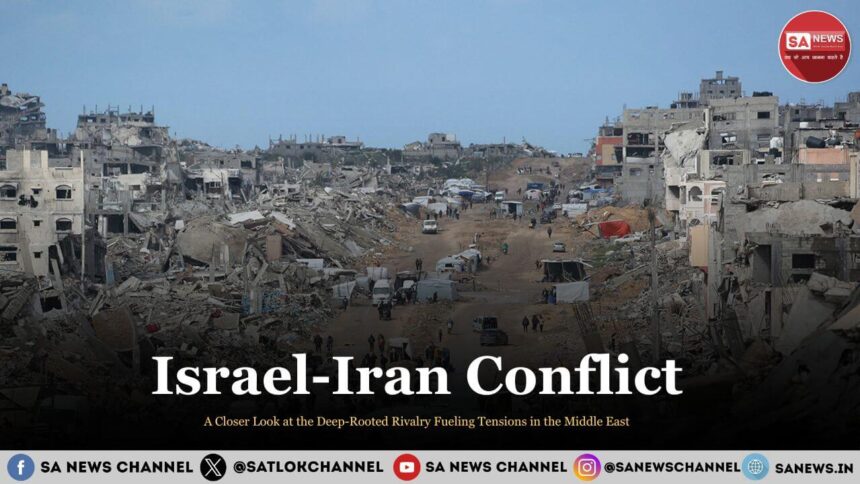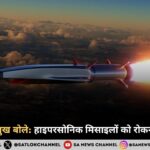As tensions between Israel and Iran continue to escalate, global observers fear that the long-standing “shadow war” between the two nations may spiral into a full-scale confrontation. While no formal war has been declared, the recent chain of military strikes, cyberattacks, and political threats reveals an alarming trend that could destabilize the entire Middle East.
At the heart of this conflict lies a decades-old ideological, geopolitical, and strategic rivalry. The roots go back to the Islamic Revolution of 1979 in Iran, after which the newly formed theocratic regime declared its opposition to the very existence of the State of Israel. Iran’s Supreme Leader Ayatollah Khomeini openly labeled Israel as an “illegitimate entity” and began supporting various armed groups committed to its destruction.
Ideological and Political Opposition
Iran’s refusal to recognize Israel as a legitimate state remains a central pillar of its foreign policy. Unlike other nations with regional disputes, Iran’s hostility is not based on territorial concerns but on ideological grounds. The Iranian regime sees Israel as a symbol of Western imperialism in the Middle East, often referring to it as the “Zionist regime” in state rhetoric.
Israel, in turn, sees Iran’s growing influence and its backing of anti-Israel militant groups as an existential threat. Over the years, Iran has established strong alliances with organizations like Hezbollah in Lebanon and Hamas and Islamic Jihad in Gaza, groups that openly vow to destroy Israel.
The Nuclear Tipping Point
A major flashpoint has been Iran’s nuclear program. Israel has consistently alleged that Iran’s uranium enrichment and ballistic missile development are aimed at producing nuclear weapons, despite Iran’s insistence that its program is purely for civilian energy.
In 2018, then-U.S. President Donald Trump withdrew from the Joint Comprehensive Plan of Action (JCPOA), also known as the Iran Nuclear Deal, further inflaming tensions. Israel welcomed the move but warned that sanctions alone would not be enough. Since then, Israel has been accused of orchestrating cyberattacks on Iran’s nuclear facilities and even the assassination of Iranian nuclear scientists.
Also Read: Israel Begins Airstrikes on Iran Under “Operation Rising Lion”
Earlier this year, an Iranian military site was reportedly targeted by Israeli drones, leading to an explosion near Tehran. Iran promised retaliation, escalating regional anxiety. Both sides have increased their military readiness, and even civilian infrastructure has been placed on high alert.
Proxy Wars: A War Without Borders
The conflict is most visible through its proxies. In Lebanon, Iran-backed Hezbollah has amassed tens of thousands of rockets pointed at Israel. In Syria, Iran has entrenched its presence through Islamic Revolutionary Guard Corps (IRGC) units and local militias, often drawing Israeli airstrikes aimed at preventing arms transfers to Hezbollah.
The Gaza Strip remains another volatile theater. During the recent flare-ups, rocket attacks from Hamas and Islamic Jihad were met with Israeli airstrikes that killed key commanders and damaged strategic assets. Iran is believed to be the financial and logistical backbone behind many such operations.
Yemen and Iraq, too, have witnessed the spillover effects of the Israel-Iran rivalry, with pro-Iranian militias occasionally making threats against Israeli or allied interests.
The Rise of Cyber Warfare
Another dimension of the conflict is cyber warfare. In 2010, the world discovered the Stuxnet virus, allegedly created by Israeli and U.S. intelligence, that damaged Iran’s nuclear centrifuges. In recent years, Iran has responded with cyberattacks on Israeli water plants, banks, and transportation systems.
Experts warn that such digital warfare could escalate quickly into physical attacks. “One wrong line of code or one miscalculation could lead to missiles being launched,” says cybersecurity analyst David Rosenberg. “Cyber conflict has lowered the threshold for war.”
Regional Alliances and Diplomatic Shifts
The Abraham Accords, brokered by the U.S. in 2020, saw several Arab nations normalize relations with Israel, a move Iran viewed as betrayal. The growing cooperation between Israel and Gulf states like the UAE and Bahrain has reshaped the regional balance of power. Saudi Arabia is rumored to be considering a similar agreement, causing further alarm in Tehran.
Meanwhile, Iran has strengthened its ties with Russia and China, both of whom oppose Western intervention in the region. This alignment has transformed the conflict into a broader geopolitical standoff.
Global Reactions and Warnings
The United Nations and major world powers have repeatedly called for restraint. The U.S. has reiterated its commitment to Israel’s security while also engaging in quiet diplomacy with Iran. Russia and China have urged both countries to return to negotiations.
However, diplomatic efforts have made little progress. In fact, recent escalations, including airstrikes, assassinations, and cyberattacks, indicate that both nations are preparing for broader confrontation, not de-escalation.
Is War Inevitable?
While both nations have reasons to avoid direct conflict, the risk of miscalculation is dangerously high. With tensions playing out across Syria, Gaza, Lebanon, and the digital realm, a small incident could quickly trigger a wider war.
The international community continues to monitor developments closely, with intelligence agencies warning that if hostilities break out into open warfare, it could drag in regional powers and lead to an unprecedented humanitarian and economic crisis.
Spiritual Reflection
From a spiritual perspective, this ongoing hostility is a reminder of the destructive nature of hatred, revenge, and worldly power struggles. According to the teachings of Universal Spiritual Leader Sant Rampal Ji Maharaj, real peace cannot be achieved through arms or diplomacy alone, it requires a fundamental transformation in human thinking. Only by understanding the true purpose of life and surrendering to the Supreme God, as revealed in holy scriptures, can humanity overcome enmity and find lasting peace.
FAQs on the Israel-Iran conflict
1. Why are Israel and Iran enemies?
Israel and Iran are ideological and geopolitical rivals. Iran’s Islamic regime does not recognize Israel’s right to exist and supports armed groups like Hezbollah and Hamas that oppose Israel. Israel views Iran’s influence and nuclear ambitions as existential threats.
2. Is there an official war between Israel and Iran?
No, Israel and Iran have never declared war. However, they are engaged in a “shadow war” involving cyberattacks, airstrikes (especially in Syria), assassinations, and proxy conflicts through groups like Hezbollah and Hamas.
3. What is Israel’s main concern about Iran?
Israel’s primary concern is Iran’s nuclear program. It fears Iran is secretly trying to develop nuclear weapons, which could threaten Israel’s existence. Israel also opposes Iran’s growing military presence in neighboring countries like Syria and Lebanon.
4. How does Iran justify its stance against Israel?
Iran claims it supports the Palestinian cause and opposes what it calls the “Zionist occupation” of Palestinian land. It sees Israel as a Western-backed regime that destabilizes the region and suppresses Muslim nations.
5. Could this conflict lead to a larger regional war?
Yes, the risk of a broader conflict is high. Proxy groups, cyberattacks, and military buildups increase the chances of miscalculation. A major incident could drag in regional powers and even global actors, leading to widespread instability in the Middle East.









